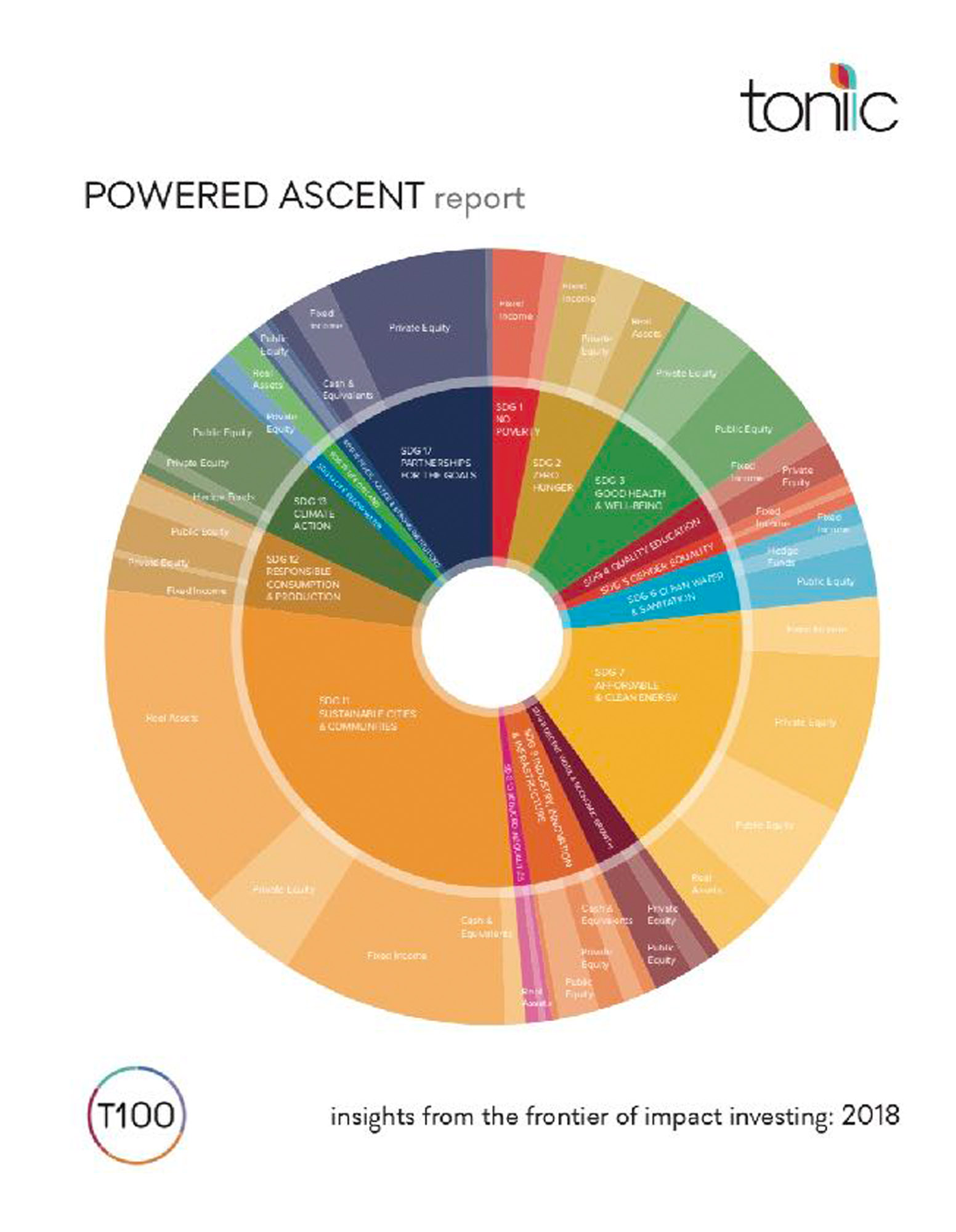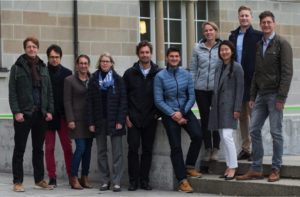Technology
Macro-economists and modern portfolio theory refer to many of the systemic issues that have not been addressed by the existing system as ‘externalities’: Climate change, social justice, inequality, global poverty, and many more. Many economists actually believe that the invisible hand of the market will fix these externalities. But it has not worked. The standard economic model has not addressed these market failures. Most investors choose short term profit maximization over long-term sustainability or even at the expense of long-term sustainability. While investors are the beneficiaries of this model, society at large has to deal with its negative environmental and social consequences.
Modern Portfolio Theory is not sophisticated enough and was not designed to solve this! It does not take social and/or environmental impact into account. We don’t buy into the old narrative of externalities. We are creating a new narrative where these externalities are internalized into the system. Part of that narrative needs to be a re-interpretation of fiduciary responsibility, that takes the long-term consequences as seriously as the short-term implications. Pension funds and other institutional capital will have to be regulated accordingly.
Impact investors are driven by the notion of risk-adjusted financial returns that are additionally optimized for the creation of positive social and/or environmental impact. Because of lack of access to impact investors and/or their investment data, the research community has not been able to effectively explore the behavioral biases of these investors and how these biases influence their ‘impact behavior’ over time.
Modern Portfolio Theory only looks at risk-adjusted modeling of financial returns. It does not take social and/or environmental impact into account. One of the main reasons for the research community’s lack of progress in advancing Modern Portfolio Theory is lack of access to impact investors and/or their investment data.



Our Engagement
Toniic’s T100 Project enables the research community to work with 100+ impact investors over multiple years to study their behavior and how it impacts their financial returns and social and/or environmental impact. It also enables studying their progress towards deploying 100% of their assets towards positive social and/or environmental impact.
This allows for deep exploration of correlation and/or relationship between impact risk & impact return and financial risk & financial return, considering different types of investors, different asset sizes, and different asset class allocations and impact categories/themes.
This research is necessary for the advancement of Modern Portfolio Theory and the development of an analytical framework and mathematical models to explore how various means for pricing positive social and environmental impact and monetizing impact value, could be integrated into the mathematical frameworks used in capital markets, investment economics, and business valuations. This could lead to a fair monetary cost assessment for the intentional creation of additional positive societal impact, e.g., what is the financial price that is appropriate to pay for a given amount of marginal impact premium?





Technology
We are at the beginning of a technology mega-cycle, that will have major ramifications throughout all industries and will have an impact on the personal lives of most people on our planet. At the beginning of such a cycle, the financial, regulatory, and ethical frameworks are not ready yet to deal with its consequences.
The last such mega-cycle was based on the invention of the computer chip in 1959, which ushered in the information age and has produced whole new industries and platforms like the computer and software industries and the Internet. The driving force behind the rapid evolution of the information age has been Moore’s law which postulates that the number of transistors on a microchip, and hence the speed and capability of computers, doubles every two years. In the 1970s the chip industry enabled the creation of a new financing mechanism and asset class, called venture capital (Kleiner Perkins Caufield & Byers was founded in 1972). It was not until the late 1970s that the regulatory framework changed to enable institutional capital to invest in venture capital, which created the first big boom for the industry. By now this cycle is still playing out, and many would argue that ethical frameworks have not evolved enough and need to be strengthened significantly in order to steer these new industries in the right direction, i.e., in the direction of making a positive contribution to humanity and the planet. Silicon Valley is only now waking up to its responsibility to do just that.
The new technology mega-cycle is based on artificial intelligence, blockchain, sophisticated robotics and the Internet of Things. It is hard to discern the beginning of this cycle, and it might be decided that it started in 2017, when AlphaGo defeated the Chinese Go Master – or with some other significant artificial intelligence event like Watson’s Jeopardy win in 2011 or the launch of Waymo’s self-driving taxi service in Phoenix, Arizona on 2018.
This mega-cycle will either result in a radical discontinuity for humanity with unforeseen and potentially dire consequences or in the emergence of the deep impact economy that serves humanity and the planet. Venture capital is not the right model for financing the deep impact economy as it was designed to maximize financial returns without any consideration for positive impact. The deep impact economy is about the opposite: maximizing sustainable long-term positive impact with an appropriate financial return. The financial instruments for the impact economy are still being developed, and modern technology will play a significant role in that. The umbrella terminology for this opportunity on the financial side is referred to as ‘tokenization’ of impact.
The main idea behind tokenization of impact is that assets, outputs and outcomes are converted into digital tokens, which are stored and managed on a blockchain network. Smart contracts – utilizing these digital tokens - will then enable various transactions like buying, selling, and trading of outputs and outcomes - promising greater transparency, liquidity, data integrity and market place exchange potential. Financial products are being structured around these tokens. The most basic financial structure is digital attribution. But the exciting opportunity is to build more complex financial structures like outcome tokens, tokenized impact bonds and structured financial products including ‘futures’.
It is important to realize that the underlying technology platforms are still immature and not ready yet for commercial deployment at scale, but certainly good enough for sophisticated prototypes (e.g., Proof of Impact). These prototypes and the maturing of the underlying technologies will lead to radically different financial products in the not too distant future, including the opportunity for tracking and trading impact. In 2018 I gave a keynote at the Silicon Valley Blockchain Society calling for the conceptualization and implementation of the ‘Impact Soul’, an intelligent block-chain based ecosystem of services and platforms that will enable investors, investees and intermediaries to conduct fully transparent and traceable impact management activities including pre-due diligence, due diligence, reporting, transaction and monitoring of investments. Now is the time to connect many of the efforts, that are emerging all over the world, to realize this vision.
Being so early in this nascent technology mega-cycle, it is not surprising that more sophisticated regulatory frameworks have not emerged yet to steer everybody towards the emergence of the deep impact economy as opposed to continuing our march towards a cliff of radical discontinuity. The consciousness and awareness of the general public as well as all relevant players need to evolve in order to put the pressure on the regulators to act. The pressures for systemic change are building up in many places, and any system under pressure will eventually change, we just don’t know when. Let’s continue working on the pressure points.

Modern Technology, Consciousness, and the Impact Economy
Charly Kleissner’s Keynote at the Silicon Valley Blockchain Society September 2018